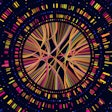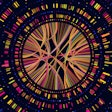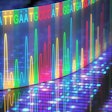
While polymerase chain reaction (PCR) technology has been at the forefront of diagnostics during the COVID-19 pandemic, sequencing has been at the forefront of understanding the SARS-CoV-2 virus responsible for the disease.
Sequencing has been an essential tool for the development of strategies and therapeutics in the fight against COVID-19, and sequencing-based rapid and high-throughput diagnostics for COVID-19 are in development. Sequencing technology suppliers are collaborating with researchers to develop sequencing-based diagnostic tools. For example, several groups are using Illumina's next-generation sequencing (NGS) technology to develop ultrahigh-throughput COVID-19 diagnostic testing.
"A lot of work is happening in that arena because the capacity you could get from NGS and the cost per sample you could get from NGS could make that very, very compelling," Francis deSouza, chief executive officer of Illumina, explained during the company's first quarter earnings call.
Oxford Nanopore is also working on COVID-19 diagnostics using portable sequencing platforms. In May, the company announced the development of Lampore, an end-to-end assay for the detection of SARS-CoV-2. Lampore is designed as a rapid, low-cost, and scalable assay that can be used in both high-throughput labs and decentralized locations.
In May, DNAe, a company relatively new to the sequencing market, announced that it is developing a point-of-need SARS-CoV-2 test using its silicon transistor-based Lidia-SEQ platform. The company is currently developing the test as part of a contract with the U.S. Biomedical Advanced Research and Development Authority potentially worth $51.9 million. In April, the U.S. Food and Drug Administration (FDA) designated the system and its first assay for detecting the infection that causes sepsis a breakthrough device. Under the breakthrough device program, the FDA supports and helps accelerate the development of novel diagnostics technologies.
Avoiding new waves of infection
Sequencing of the viral genome is important on many fronts in understanding and responding to COVID-19. By sequencing the RNA genome of the virus, researchers are monitoring the emergence of variants over time and through communities to trace the origins and spread of infections. The first sequencing of the virus that emerged in Wuhan, China, was completed in January using Illumina's sequencing platforms. The same month, Oxford Nanopore shipped 200 of its MinION instruments to China for use by public health labs. These efforts, combined with contact tracing, are increasingly important to avoid additional waves of infection as social distancing and stay-at-home orders are gradually being eased in many regions. Sequencing data gathered during and following the pandemic will also strengthen the ability to respond to future epidemics and pandemics.
Understanding of the virus and its genome is also guiding the development of drugs and vaccines. Identifying conserved regions of the genome aids with selecting effective targets for potential vaccines, while identifying mutational hotspots could provide clues for the potential emergence of drug resistance or evasion of immune response.
Additionally, sequencing of COVID-19 patients is important for identifying genetic factors that may impact susceptibility, disease severity, immune response, and risk of reinfection. This has been an area of focus for Pacific Biosciences, which is promoting its long-read sequencing technology for decoding patient immune response to COVID-19. Such testing is in line with the trend of personalized medicine, which is quickly becoming a standard of care in many developed markets.
Sequencing's contribution to studying and diagnosing COVID-19 as well as treatment and vaccine development can only be expected to increase with vendors on board for the challenge.
Alice Kan is senior market analyst, life sciences leader, at Strategic Directions International (SDi).
Disclosure: LabPulse.com is a sister company of SDi.



















